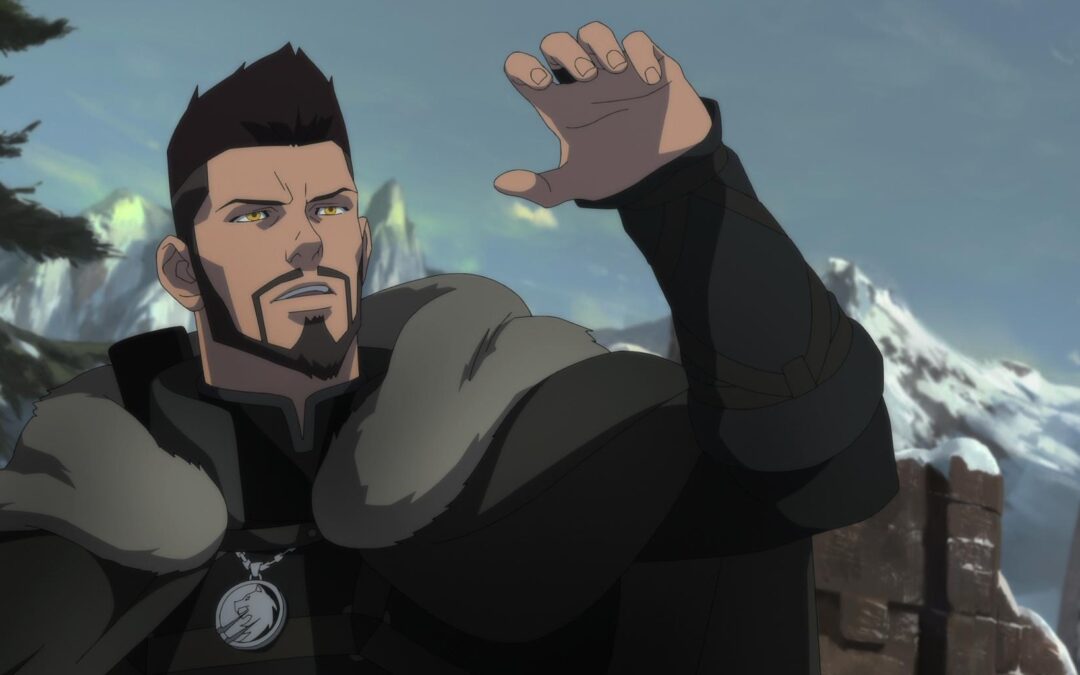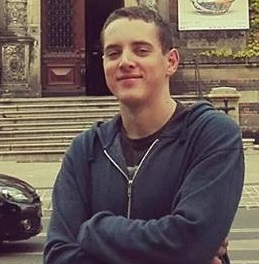By Mateusz Perowicz (published in cooperation with the Jagiellonian Club think tank)
Keen followers of Geralt of Rivia around the world show little sign of getting bored with him. An excellent game has been followed by a decent television adaptation, while the novel itself is undergoing a revival. But this is not enough for fans, who dream of The Witcher coming to life in various other incarnations.
The game has been a gift for Poland. Video game developer CD Projekt exploited the potential of the Witcher’s world to the fullest with an outstanding adaptation snapped up around the world. Executive producer Tomek Bagiński has also made the most of it. Years of efforts to bring the White Wolf to the silver screen resulted in collaboration with the world’s biggest streaming platform, Netflix. The Witcher franchise could clearly be a goldmine.
With each lucrative success, the brand has come closer to ubiquity. Recently, it even appeared at the Olympic Games. Russian shooting gold medallist Vitalina Batsarashkina competed while wearing a Witcher medallion. The Belarusian rhythmic gymnastics team, meanwhile, performed to music from the Witcher games. Although fans have seen Geralt in every form, the trend shows no sign of abating.
Steel for humans, silver for monsters, gold for Vitalina Batsarashkina! Congratulations 🥇
We hope that your witcher medallion will bring you luck during Thursday's 25m Precision competition too!
Read more about @Super_Vitalina success: https://t.co/irYgAgpEG0 pic.twitter.com/Ri5BOmDXb0
— The Witcher (@witchergame) July 27, 2021
Chorts and fiends at the shopping mall
We will have to wait a little for the next instalment from CD Projekt as well as the second season on Netflix. Yet hungry fans have received an appetiser. On 21 July, the mobile game The Witcher: Monster Slayer was released. This, of course, was a test for how much life the Witcher brand has in it. The competition never sleeps. Many other similar themed games, books and series have appeared. Does anyone still remember the Witcher? Absolutely!
Monster Slayer is a similar game to the smash-hit Pokémon GO. Load it up and your neighbourhood turns into the world known from your favourite franchise. A rubbish bin becomes a moonwraith who we can attack. As with the Pokémons before, now masses of people wander around experiencing Witcher adventures – collecting equipment and battling to complete their mission. Comparisons between the Polish production and the Nintendo hit are unavoidable. And although Monster Slayer has not become quite as popular, in some respects it definitely vanquishes the Japanese competition.
CD Projekt Has Announced an Augmented Reality Game Based on #TheWitcher!
Titled as The Witcher: Monster Slayer, it’s a free-to-play, augmented-reality, location-based RPG for mobile, which developed and published by Spokko, a member of the CD Projekt.
— Geeky Updates (@TheGeekyUpdates) August 26, 2020
The game, developed by the Spokko studio, is much less socially exclusive. With Pokémon GO, the best residents of small towns and villages could hope for was to watch on YouTube to see how good it was in better locations. The game was unsparing in revealing who had the better start in life. Monster Slayer is better in this respect, though not perfect. The latest augmented reality production also signals a return to the debate of whether this use of free time worsens smartphone addiction or gets people glued to their screens outside.
Within a week, the game had been downloaded a million times around the world and made more than 2 million zloty (€440,000). Interest in the first days after the launch was huge. But the unique thing about this type of game is that they cannot be completed. There is no main object after which the fun ends. You can put it away and come back a month or two later and carry on playing. The creators just need to skilfully tack on the next Witcher productions, and there will be a lot of them.
Escaping Geralt
The Witcher: Blood Origin and The Witcher: Nightmare of the Wolf are the titles of two new Netflix productions. They have one very important characteristic in common – the hero of the stories will not be Geralt of Rivia.
Following the success of its The Witcher series, based on the books by Polish author Andrzej Sapkowski, @netflix is this month releasing an anime spinoff focusing on the character of Vesemir https://t.co/Wn6XakPNuA
— Notes from Poland 🇵🇱 (@notesfrompoland) August 10, 2021
It is hardly surprising that Geralt has captured the mass imagination. He is an incredibly distinct, unusual protagonist. His behaviour is unpredictable and his motivation is idiosyncratic enough to make him stand out from the other characters around him. The White Wolf is as at home binging in the inn as he is at a banquet at the palace. He fits in with the riffraff and is not out of place in the upper echelons. And yet he will always be a misfit.
Among the rabble, he sticks out with his intelligence, while in the salons he displays an entirely different values system than the upper class as he takes heed of the common folk’s problems and ailments.
Geralt is always different from the others – one of a kind. And this is part of the character’s success. He belongs to nobody, and no one can fully identify with him, so paradoxically, everybody can have the sense that they have something in common with the Witcher.
The next virtue of his story is the multiple threads and excellent construction of relations between characters. Andrzej Sapkowski not only created a marvellous fantasy world, but also planted within it one of the best unconventional love stories.
As a result, the Witcher series does not so much tell the story of a monster slayer as weave the tale of a broken family that tries to defy fate and be together. A simple sword-wielding killer would soon grow boring. But Geralt is also a defender of the oppressed, a caring parent and a geopolitical tactician, and this is why the world took a shine to him.
It is high time to do without him, though. The Witcher universe now faces its biggest challenge. If the brand is to grow further, it must be separated from Geralt to construct other stories based on other topics and characters.
The first test was Monster Slayer, in which we become a random witcher – and fans were clearly not disappointed. Netflix’s next two productions without Geralt are the next test and a milestone in the expansion of the world.
“Of course we want to develop the universe,” said Lauren Hissrich, The Witcher’s showrunner. “Work has started on the spin-off. I know very well that people who see our film will not automatically be interested in the series or get the books and game. That’s why we’re trying to reach various audiences with our productions, and we’ll do that with various characters.”
Hissrich explains that this is why one of the new productions will be made in anime style.
“The first season of The Witcher was watched by 80 million people around the world,” she says. “We reached viewers in Poland, the United States, Brazil and the UK. Interestingly, the show was even a hit in Korea. So we decided to take this story – created in Poland and produced by an American company – and go further into the Asian market with it.”
Anime gives us that opportunity. It has a huge fan base. Many of them have never heard of The Witcher. If they like our show, they’ll go on Google and look for information about where the character comes from and what this world is. They won’t see the series first, but the books…
CD Projekt is going in a similar direction. The Polish company wants to conquer Asia with the manga The Witcher: Ronin, and at the same time has teamed up with Dark Horse to publish comics, with a recent upswing in quality.
We already know that Geralt will also not feature – at least as the main character – in CD Projekt’s upcoming fourth instalment of the Witcher computer game. This is absolutely the right decision. The Witcher world is rich enough that separate games and series can be made about the Lodge of Sorceresses, elves, dwarves or jarls of Skellige. There is sufficient material for a pantheon of superheroes à la Marvel or turn-based strategies games in the mould of Heroes of Might and Magic III.
Breaking away from Geralt is essential. It could turn the brand into a goldmine for decades – and both Netflix and CD Projekt know this very well. This year, the two companies launched Witchercon, a huge celebration of all things Witcher-related. There was a great deal of interest in the event – the first sign of such advanced collaboration between the two companies, which had previously been developing the universe separately.
This will probably be the beginning of a synergy of games and series. The cult game The Witcher 3 has already gained extra free materials with elements from the Netflix show. All the smaller productions are investments in additional fans and new markets. This will all mean greater popularity for the main product, the next game or the second season.
Exploiting the fashion for all things Polish
This collaboration is also a guarantee that the Witcher universe will continue to expand – and Poland can reap the benefits. Thanks to Poland for The Witcher appeared outside the Polish embassy in the USA some time ago. Polish artists and companies have been working on producing series, animated films and comics from the Witcher world.
Pleasant surprise in front of our Embassy. Glad you like The #Witcher from 🇵🇱 too! pic.twitter.com/F5tBw4jsrx
— Embassy of Poland U.S. (@PolishEmbassyUS) August 26, 2019
Notably, though, the US firm Netflix has emphasised the links with Poland much more than CD Projekt has. The Americans have been working with Sapkowski from the outset, promoting him as the creator of the universe. They have also produced additional materials in which the cast of the show encounter Polishness – from the language to flavours.
This is another example of the sad fact that Polish companies would rather pretend to be western corporations, avoiding any mention of Poland. Marketing agencies of foreign corporations, on the other hand, daub themselves in white and red, adeptly exploiting the fashion for Polishness.
The Witcher only become a real national treasure when the west let us know we had nothing to be ashamed of. Now Poland needs to work to make the world realise that it is a made-in-Poland product. We missed out on The Witcher’s first wave of popularity, but all is not yet lost.
The brand shows no signs of waning, and it would be a shame to miss the chance to promote the country where it was born. The Witcher is a missing piece in the global, pop-culture jigsaw – one of few such popular characters, if not the only one – that is not part of one of the world’s largest corporations.
Poland has something that is the envy of other countries. But will the country be able to make the most of it?
The original Polish version of this article can be found here. Translated by Ben Koschalka
Main image credit: Netflix (promotional material)





















